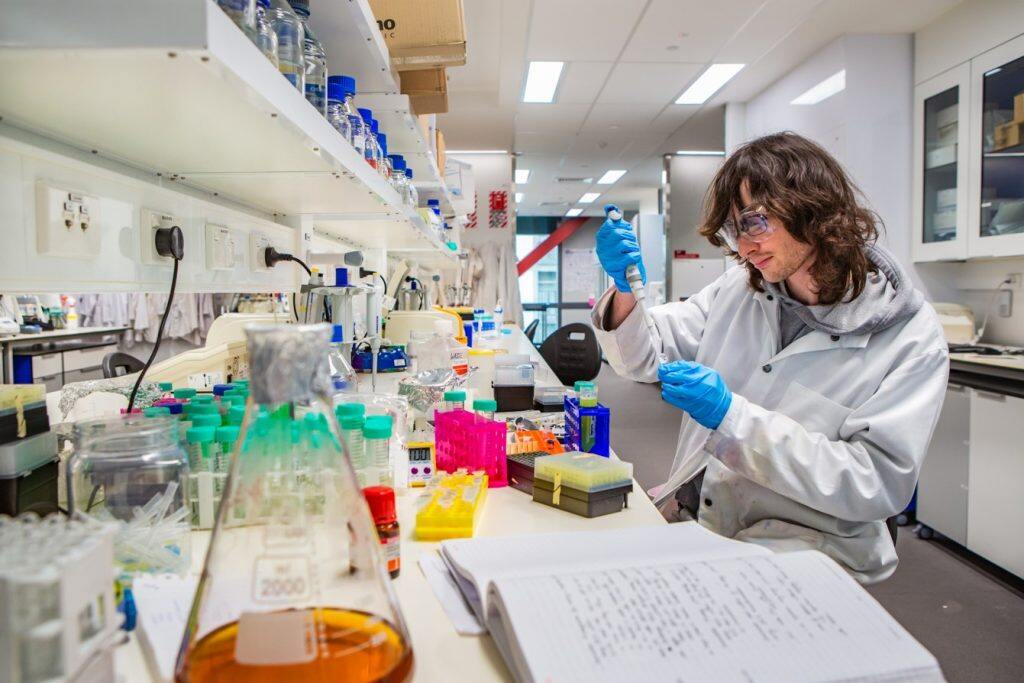Source: University of Canterbury


Campylobacter jejuni is a common cause of food poisoning in New Zealand. Yet the biomolecular interactions at play when this bacterial infection strikes are poorly understood.
Campylobacter jejuni is a common cause of food poisoning in New Zealand. Yet the biomolecular interactions at play when this bacterial infection strikes are poorly understood.
With the support of a Fast-Start grant from the 2019 Marsden Fund Te Pūtea Rangahau a Marsden, University of Canterbury (UC) researcher Dr Timothy Allison is taking a closer look at this human pathogen in order to expose the complex interactions of its membrane-bound machinery.
UC is the only institution in New Zealand with the right cutting edge equipment – a specialised mass spectrometer instrument – for this innovative new research in the area of protein science and structural biology.
In fact, UC recruited an expert in native mass spectrometry, Dr Timothy Allison, who joined UC in 2018 from the Oxford University lab that pioneered this technique.
Now Dr Allison is conducting an exciting new study at UC. Of interest to him is something fundamental to life itself: the interactions of different biomolecules. “Whilst we understand an enormous amount about some of these interactions, our knowledge is dwarfed by how much we are still to comprehend.”
The project has attracted a three-year Fast-Start grant of $300,000, recognising the high calibre of work being undertaken by this emerging researcher, who is also a UC graduate. Mentoring him on the project is UC Professor Antony Fairbanks.
In particular, Dr Allison is curious about the role of membrane proteins inside cell membranes. Not a lot is known about how these proteins interact with each other or how the lipid molecules of the membrane affect protein structure and function. From the perspective of our daily lives, all of this is happening out of sight. Yet these minute interactions may actually play quite a significant role when it comes to bacterial infection.
Dr Allison cites the example of the human pathogen, Campylobacter jejuni. Sugar-modified proteins synthesised by this bacteria – attached to the outside of its cells – influence its ability to cause infections. It uses a series of large biomolecules, or membrane proteins to biosynthesise the sugar-modified proteins.
“We will determine how protein and lipid interactions affect the structure and function of these important proteins. This research will advance our understanding of the complex interactions of proteins and lipids.”
This is one of 12 UC-led research projects to have received a grant from the 2019 Marsden Fund Te Pūtea Rangahau a Marsden, highlighting the world-class research, across diverse fields, currently undertaken at the University.
For further information please contact: UC Communications team
Edit: The World Education News(WEN)







































